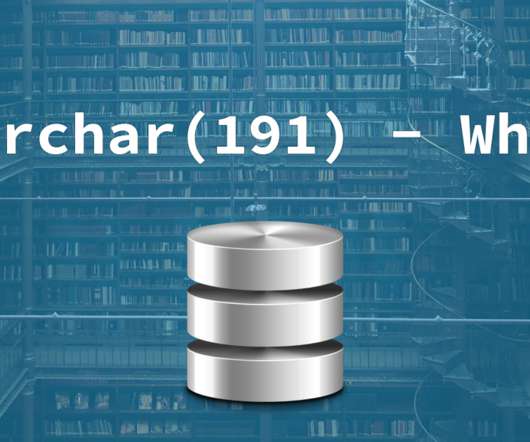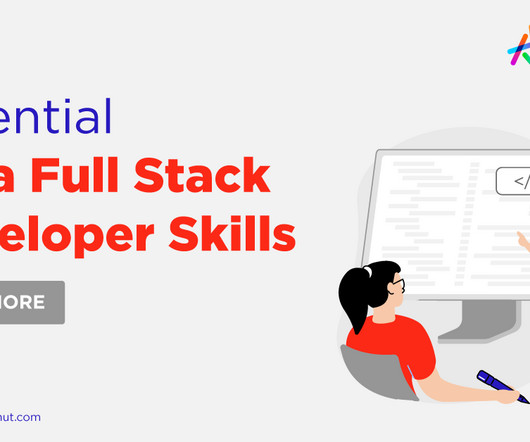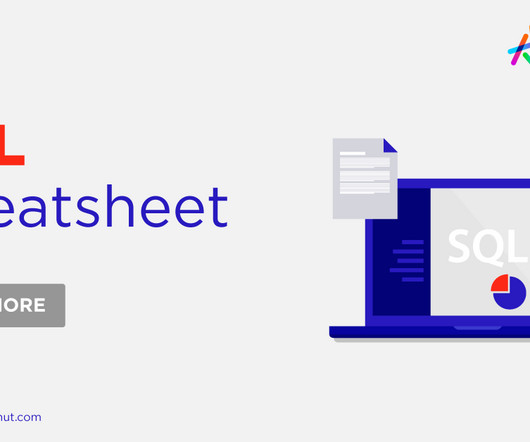Why are database columns 191 characters?
Grouparoo
MAY 13, 2021
In this post, we’ll look at the historical reasons for the 191 character limit as a default in most relational databases. The first question you might ask is why limit the length of the strings you can store in a database at all? MySQL in the early 2000s was happy supporting 255 characters in varchar columns and indexing them.













Let's personalize your content